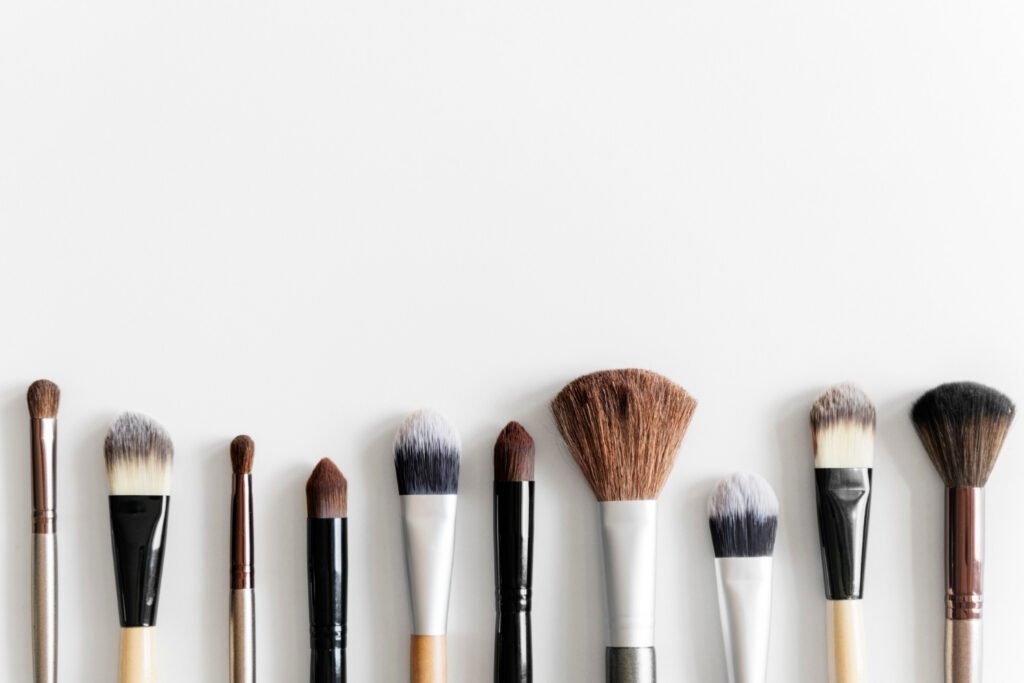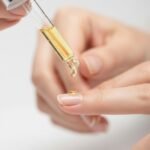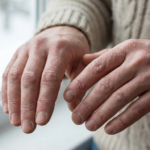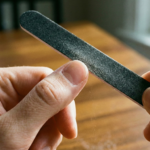Your makeup brushes are essential tools that help you achieve flawless application, but without regular cleaning, they can accumulate bacteria, oil, and product buildup. This can lead to skin irritation, breakouts, and compromised makeup performance. Keeping your brushes clean isn’t just about hygiene—it’s also about extending their lifespan and ensuring optimal results. 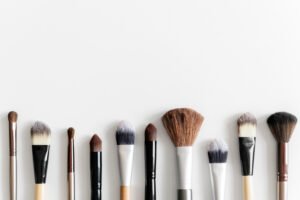
Why Cleaning Your Makeup Brushes Matters
Since makeup brushes come into contact with your skin daily, they collect oil, dead skin cells, and leftover products. Over time, this buildup can cause:
- Breakouts and clogged pores due to bacteria accumulation.
- Irritation from dirt and old makeup residue.
- Streaky or uneven makeup application due to bristle clumping.
By regularly cleaning your brushes, you ensure they remain soft, effective, and safe for your skin.
How Often Should You Clean Your Brushes?
To maintain hygiene and brush performance, follow these cleaning guidelines:
- Face Brushes (Foundation, Concealer, Powder, Blush): Clean at least once a week.
- Eye Brushes (Eyeshadow, Eyeliner, Blending Brushes): Wash every 1-2 weeks.
- Occasionally Used Brushes: Clean at least once a month.
Essential Supplies for Cleaning Makeup Brushes
Before you begin, gather the following:
- Gentle shampoo or baby shampoo
- Brush cleanser (optional)
- A bowl or sink
- Lukewarm water
- Clean towel
- Brush drying rack or a flat surface
Step-by-Step Guide to Cleaning Makeup Brushes
- Rinse the Bristles Hold your brush bristles downward under lukewarm running water. This prevents water from reaching the ferrule (the metal part), which could weaken the glue holding the bristles.
- Apply Cleanser In a small bowl, mix a drop of gentle shampoo or a dedicated brush cleanser with water. Swirl the bristles in the solution to break down makeup and oil residue.
- Lather and Clean Use your fingers or a silicone cleaning pad to gently massage the bristles, loosening dirt and excess product. Avoid scrubbing too harshly to maintain the brush’s shape and integrity.
- Rinse Thoroughly Hold the brush under lukewarm water again until the water runs clear. Make sure no soap or residue remains in the bristles.
- Remove Excess Water Gently squeeze the bristles with your fingers or a clean towel to remove excess moisture. Avoid pulling on the bristles to prevent shedding or deformation.
- Reshape the Bristles While damp, reshape the brush to its original form to maintain its effectiveness and appearance.
- Dry the Brushes Lay your brushes flat on a clean towel or use a drying rack. Make sure the bristles hang slightly over the edge of a surface to allow proper air circulation. Never dry brushes upright, as water can seep into the ferrule and weaken the glue.
Tips for Keeping Brushes Clean Longer
- Spot Clean Between Uses: Use a quick-drying brush cleanser spray to remove excess product after each use.
- Store Brushes Properly: Keep them in a clean, dry container to prevent dust and bacteria buildup.
- Avoid Sharing Brushes: Sharing brushes can spread bacteria and oils, increasing the risk of breakouts.
Common Mistakes to Avoid
- Using Hot Water: Excess heat can damage bristles and loosen glue.
- Skipping Regular Cleaning: Dirty brushes affect both your skin’s health and makeup application.
- Drying Brushes Upright: This allows water to seep into the ferrule, causing shedding and damage.
Cleaning Your Brushes: A Self-Care Ritual
Taking the time to clean your brushes isn’t just about maintenance—it’s a form of self-care. Keeping your tools fresh and hygienic enhances your makeup routine and promotes healthier skin, ensuring every application is smooth and flawless.
FAQs
1. Can I use dish soap to clean my makeup brushes? While dish soap removes oil, it’s harsh on bristles. Opt for a gentle shampoo or brush cleanser instead.
2. How do I clean makeup sponges? Soak them in soapy water, squeeze to remove makeup residue, rinse thoroughly, and let them air dry.
3. Can dirty brushes cause acne? Yes, bacteria and oil buildup on brushes can clog pores and lead to breakouts.
4. Should I use conditioner on my brushes? A small amount of conditioner can soften natural bristles, but it’s unnecessary for synthetic brushes.
5. How can I sanitize my brushes? After cleaning, lightly spritz the bristles with rubbing alcohol to kill bacteria and let them air dry completely.
By incorporating regular brush cleaning into your beauty routine, you’ll enjoy better makeup application, healthier skin, and tools that last much longer!

